UK Standards regime the reason for high consumer trust

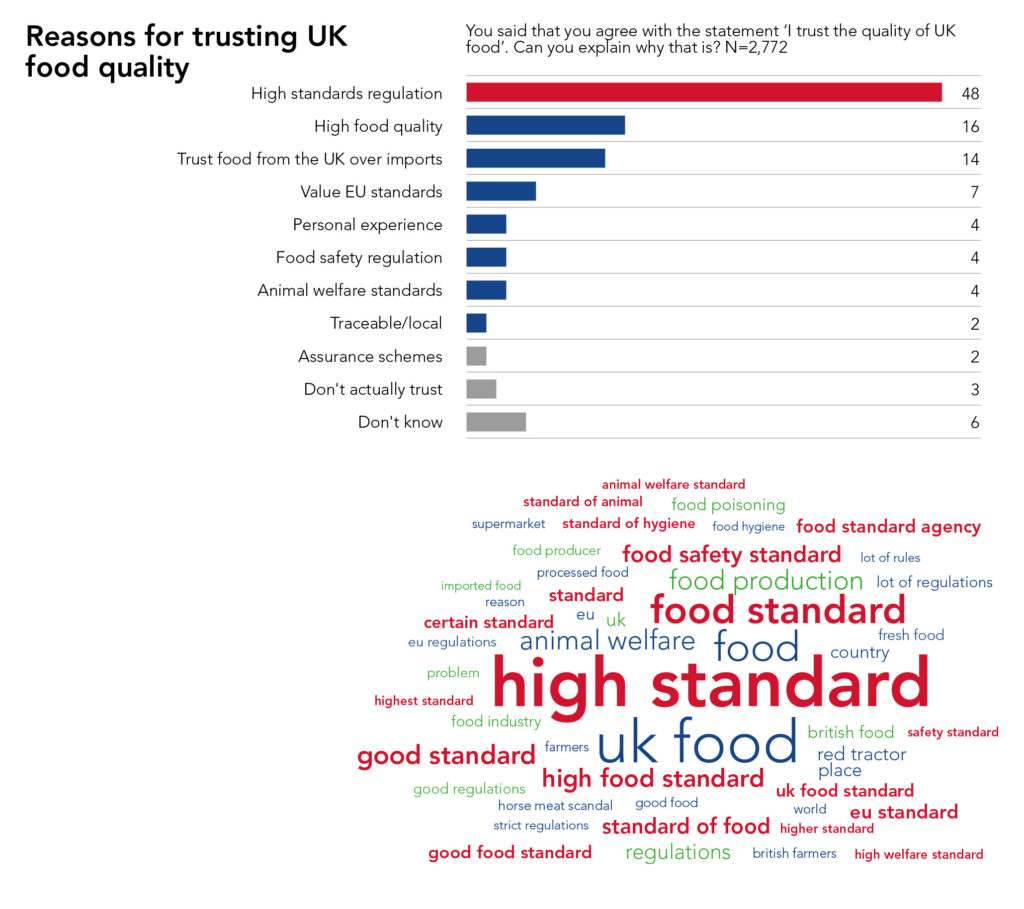 At the heart of the general public’s trust in UK food is an implicit trust in the systems of regulation and assurance that exist in the UK.
At the heart of the general public’s trust in UK food is an implicit trust in the systems of regulation and assurance that exist in the UK.
This might reflect the importance of the UK’s standards regime which has been at the centre of public debate over the past 18 months, from concerns around foods with high fat, salt, and sugar content, through to concerns over the impact of Brexit on food standards.
While only a few consumers can name specific assurance schemes or the UK food regulator, there is a broad conviction that the regulatory system that exists is doing its job in the background, ensuring food is safe and of good quality. Of those surveyed, 48% mention high standards and regulations as being something they trust in.
14% of respondents say they trust UK food specifically because they assume it comes from the UK, preferring it to imported food.
On the other hand, for a smaller proportion of respondents (7%), their trust in food is connected to our relationship with the EU. These respondents show an awareness that the EU’s food standards are still being replicated in the UK, or they generally trust food imported from the EU.
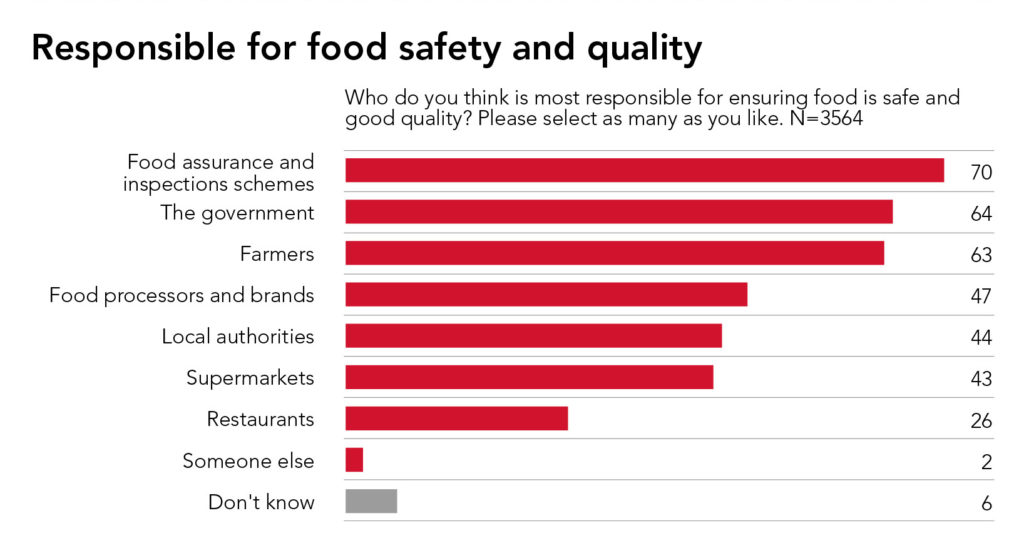
Respondents feel that inspection and assurance schemes play a greater role than the Government or farmers in ensuring that the UK’s food is safe and of good quality.
This suggests there is an important continuing role for assurance schemes in the UK in order to maintain public confidence and trust in British food.
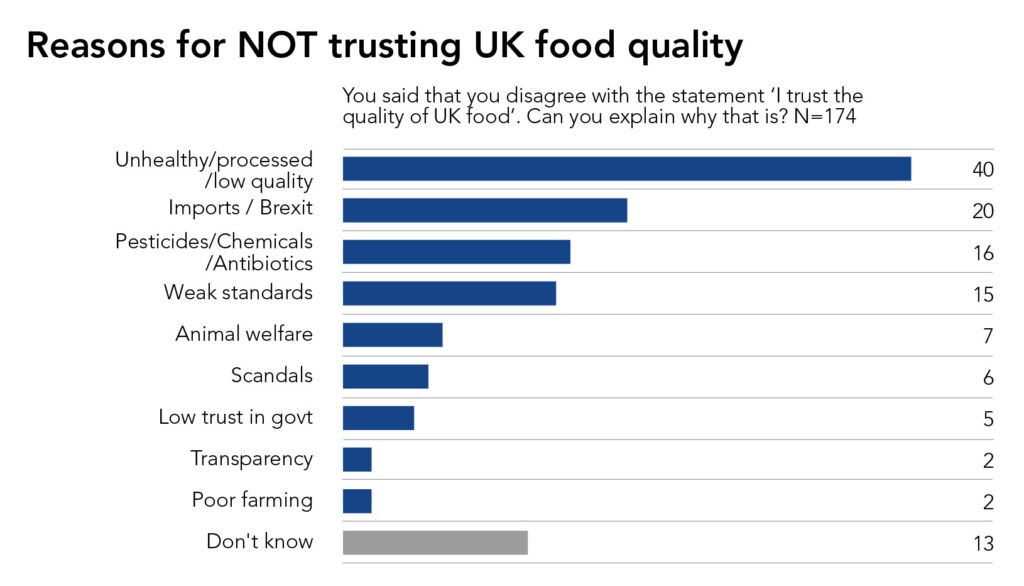
A lack of trust in UK food is very much a minority position. Of the few respondents who said that they don’t trust UK food, 40% base their criticism on the belief that the food available to them is unhealthy, overly processed, or in other ways low quality.
One respondent commented that “there is a lot of cheap, low-quality food in terms of nutrition.”
A further 20% base their criticism of UK food on the fear that UK food standards will drop because of Brexit and the UK now having the ability to alter food standards freely (potentially to secure future trade deals outside of the EU.)
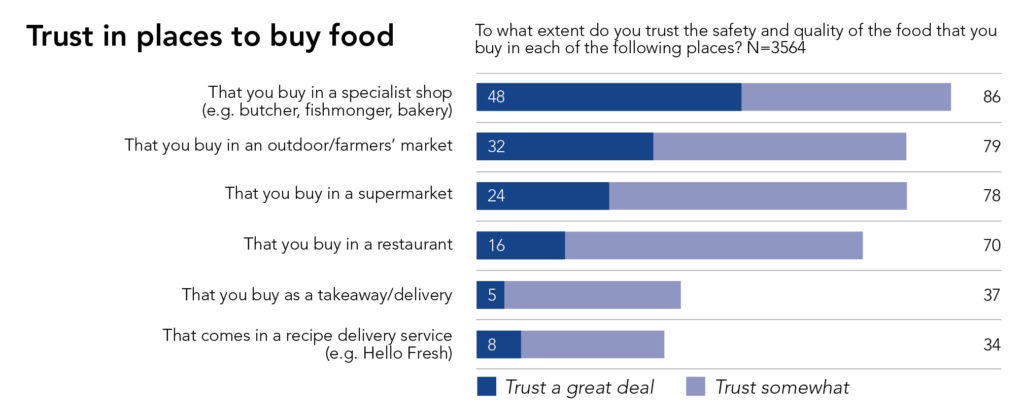
Trust in the food we consume is very high across all the places where shoppers buy food to prepare themselves. This is especially the case with specialist and ‘hyper-local’ shops. The UK public appears to instinctively trust food that it perceives as local (e.g. from local butchers or bakers.)
The level of trust falls slightly for food prepared in restaurants, although it is still high overall.
Levels of trust fall much lower for food from takeaways and deliveries. This may be due to a concern about safety or possibly a concern about the healthiness (e.g. high in fat, salt and sugar) of these types of food. It might also reflect a lack of transparency in restaurant supply chains.
Trust in recipe boxes delivered to your door is much lower, partly because 42% of people say they don’t have an opinion one way or another.

Understandably, people trust food they prepare themselves far more than food pre-prepared for them. This suggests that there isn’t a significant concern about preparing food badly in our own homes.
The more packaged and processed the food is, the levels of trust falls. Again, this is most likely to do with the health associations (e.g. high in fat, salt and sugar) with those types of food rather than consumers believing them to be unsafe.
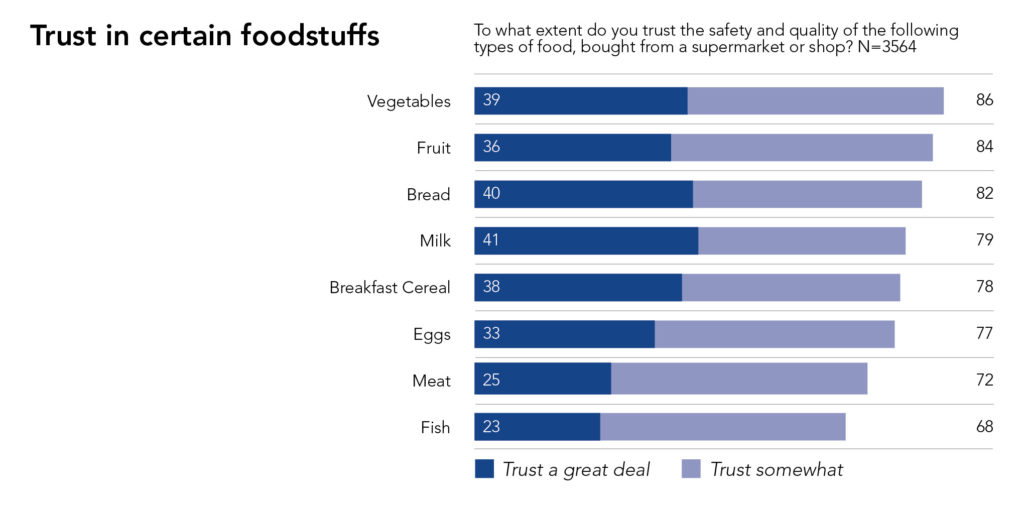 Trust is high across the board for all key categories of food. Eggs are broadly comparable with milk (although more people trust milk “a great deal”), suggesting that the salmonella concerns that impacted trust in UK food 30 years ago are a distant memory.
Trust is high across the board for all key categories of food. Eggs are broadly comparable with milk (although more people trust milk “a great deal”), suggesting that the salmonella concerns that impacted trust in UK food 30 years ago are a distant memory.
Trust in meat and fish is somewhat lower. This is possibly because of increasing awareness of vegetarian and vegan diets, but also possibly the result of an awareness that meat and fish can ‘go off’ quickly and the impact on health of poor-quality meat and fish can be greater.
Lower consumer confidence in fish might be explained by an awareness that fish is more difficult to prepare than meat.

